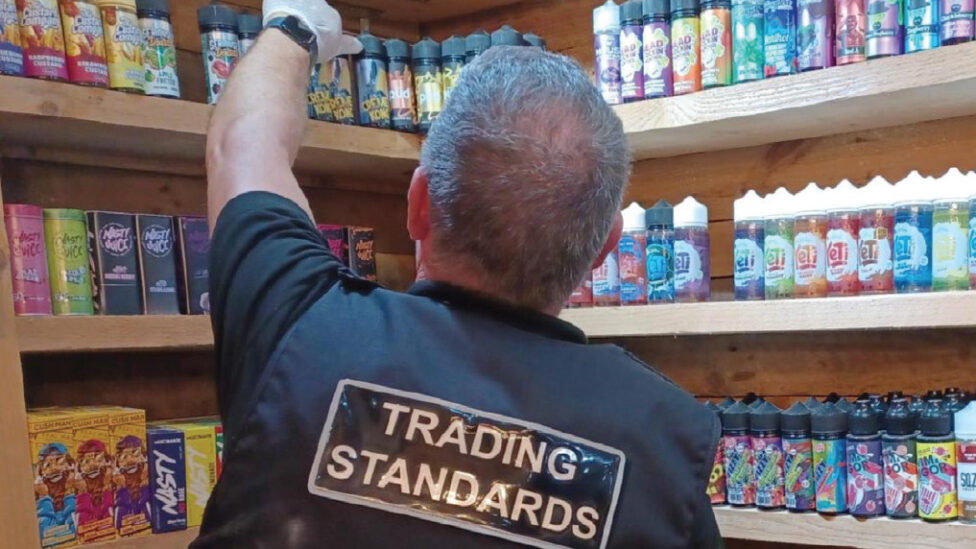A firm responsible for testing the legality of vaping products has said that trading standards requires more funding and staff for the disposable vape ban and other planned restrictions to be effective.
From 1 April next year, disposable vapes will be illegal, with restrictions on the in-store display, packaging, and flavours of all remaining vapes to begin on the same day.
Inter Scientific works with trading standards to test vaping products seized from shops. Describing the upcoming legal changes, the firm’s customer solutions advisor, Tom Coleman, told Better Retailing: “Once the disposable vape ban comes in, the ban can’t really do much worse than the state the market is in already anyway. The market is already flooded with them.”
Coleman added that an effective solution would be if an excise tax was put on vapes, so responsibility would also fall on HMRC at the border to check vapes, which would effectively expand resources for trading standards.
“One of the reasons illicit vapes are so rife is that there’s no legislation on how to test the products when they’re on the market. So there’s no batch testing or random sampling that [is] done on products at the moment.”
Government sets date and penalties for disposable vape ban in draft regulation
Coleman added that a flavour ban is “definitely” feasible, as a flavour ban could lead to a general blanket ban of a specific chemic, and “they could feasibly make it a requirement to show test reports from accredited labs to show that the products do not contain that chemical, and then they could do random sampling to ensure that the test reports are accurate”.
Despite the overfilling scandal last year, which uncovered widespread breaches of vaping regulations by mainstream brands including Elf Bar last year, Coleman said there is still no resource or programme for wide-scale testing of lines registered with the Medicines and Healthcare Products Regulatory Authority (MHRA).
He explained: “The vast majority of products that are tested by us for trading standards are ones that are not MHRA-registered. And, in their own words, [trading standards] have got this massive fire with the illegal vapes that they simply don’t have the [resources] to do widescale vigilance testing on MHRA-approved products.
“MHRA-registered products have to comply with the Tobacco Products Directive and upcoming restrictions. It’s hard to say that they can’t be trusted, especially as we haven’t done any widescale testing on MHRA-approved products. I know there’s been scandals on fill volume. If MHRA required more stringent testing, you’d be able to drop the hammer down on them, so to say, on the new restrictions.”
Inter Scientific recently launched Vape Aware, a portal that publishes results from legal compliance tests carried out on vaping products sold in the UK market. The portal will aim to help enforcement agencies, consumers, and retailers in identifying illicit products by providing a single-source database. The second phase of the programme will allow retailers and the public to check testing data on a wide range of vaping lines, though a date for this next step is yet to be revealed.
Read more news and advice on trading standards



Comments
This article doesn't have any comments yet, be the first!